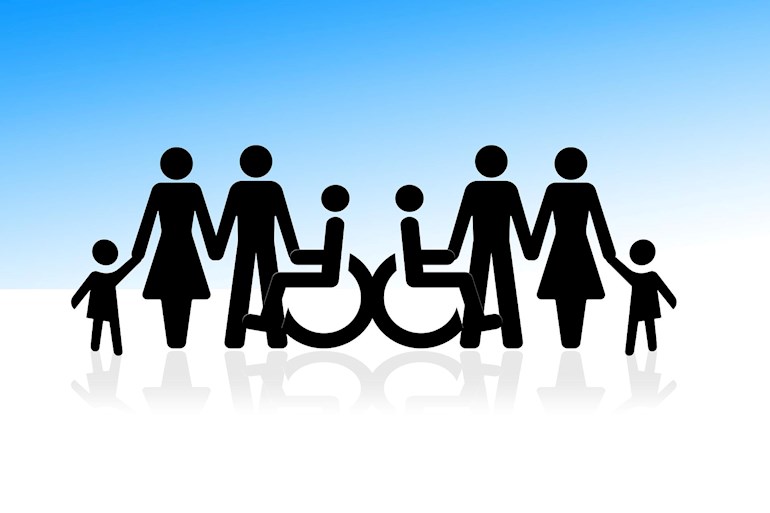Universal Credit is a means-tested benefit for people of working-age who are on a low income.
It replaces six existing means-tested benefits:
▪ Income Support
▪ Income-based Jobseeker’s Allowance
▪ Income-related Employment and Support Allowance
▪ Housing Benefit
▪ Child Tax Credit
▪ Working Tax Credit
Universal Credit is paid on a monthly basis. Entitlement is worked out by comparing your basic financial needs that the government says you need to live on with your financial resources.
Source: turn2us.org.uk/Benefit-guid...
The 4 work-related activity groups are:
▪ ‘no work-related requirements group’ - you don’t have to do any activities to prepare or look for work
▪ 'work-focused interview group’ - you have to go to regular interviews with your work coach at the Jobcentre to get support with preparing for work in the future. You won’t have to look for work, be available for work or prepare for work now
▪ ‘work preparation group’ - you have to do activities to prepare for work, eg attend training, do some work experience, write a CV, go to interviews with your work coach at the Jobcentre to help you find or stay in work. You won't have to actually search for work or be available for work
▪ ‘all work-related requirements group’ - you have to do all you can to find a job or a higher paid job. This includes looking for jobs, applying for jobs, going to interviews, etc. You have to be ready and available to take up work straight away
What group you’re in can change over time as your personal circumstances change. You’ll regularly review this with your work coach
You should be in the ‘work preparation group’ if you have an illness or disability that limits how much you can work, but you could still do some things to prepare for work, eg attend training.
This is called having ‘limited capability for work’. This means you might have to carry out the following types of activities:
▪ preparing for work, eg taking part in training or work experience - you won’t have to search for work or be available for work
▪ going to one or more interviews with your work coach at the Job Centre to help you find or stay in work
▪ You should be in the ‘no work-related requirements group’ if you have an illness or disability that limits how much you can work and you’ll struggle to do any activities to prepare or look for work. This is called having ‘limited capability for work and work-related activity’. This means you won’t have to do any work-related activities - you won’t be expected to prepare for work, look for work or get a job.
If you have an illness or disability but it doesn’t limit your ability to look for work or get a job, you could be placed in the ‘all work-related activity group’. Make sure you tell your work coach what you can manage and what’s realistic and achievable for you.
If you're in education and can get Universal Credit, you'll be in the ‘no work-related requirements group’. If you're in this group, you won't have to do anything to prepare for work or look for a job.
To be in this group, the following have to apply:
Either:
▪ you’re on a full-time course of study or training and you’re not in advanced education, eg studying for a postgraduate degree or a comparable qualification, a first degree or a comparable qualification, a diploma of higher education, a higher national diploma, any course above advanced GNVQ or its equivalent, any course above A level standard and
▪ you have no parental support - eg you don’t have a parent, or you can’t live with your parents because you’re estranged, or your parent can’t support you because they’re in prison or have a physical or mental impairment and
▪ you’re under 21 or have reached this age while you were on your course
Or:
▪ you’re a student with student income (eg a grant or loan) that is being taken into account in calculating your Universal Credit entitlement
Source: citizensadvice.org.uk/benef...
If you disagree with the initial decision, you can appeal the decision firstly by mandatory reconsideration followed by a tribunal if necessary.
More information about Mandatory Reconsideration via link below;
citizensadvice.org.uk/benef...
Tribunal information can be found via link below;
citizensadvice.org.uk/benef...
Once receiving UC you must fulfil the requirements of the group you have been placed in or otherwise face sanctions. more information here;
citizensadvice.org.uk/benef...
You can apply for a Hardship Payment if you have been sanctioned and need financial assistance, see link below;
citizensadvice.org.uk/benef...
Currently there is around a 4-6 week wait for payments before they are made and the Universal Credit helpline number is:
Telephone:
0345 600 0723
Textphone: 0345 600 0743
Open Monday to Friday 8am - 6pm
Calls to this number can cost up to 9p a minute from a landline, or between 3pand 55p a minute from a mobile (your phone supplier can tell you how much you’ll pay) - you can call and ask them to call you back.
For other useful website please click the links below;
healthunlocked.com/afmcguk/...
Hope this helps
AFMCG 
